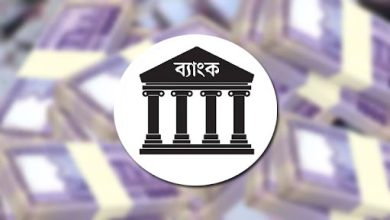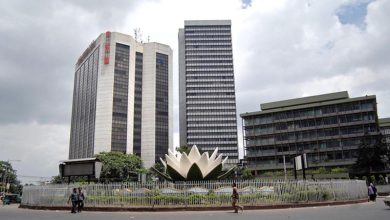Govt fixes egg, onion, potato prices, Now challenges it to be established.

Experts sceptical if move would be effective in bringing down prices
In a first, the government yesterday fixed the prices of eggs, onions and potatoes in its bid to contain the runaway food inflation, which hit a 12-year-high last month.
In August, food inflation soared 278 basis points to 12.54 percent — the highest since October 2011 — with the price spiral more pronounced in rural areas, according to data published by the Bangladesh Bureau of Statistics on Sunday.
Subsequently, the agriculture ministry fixed the prices of the three items, whose prices have remained elevated in recent weeks, under provision four of the Krishi Biponon Ain 2021. The commerce ministry will implement the new prices, said Wahida Akter, agriculture secretary.
The retail price of an egg, which shot up last month, has been fixed at Tk 12, while onion, whose price has spiralled following India’s announcement last month to impose a 40 percent export duty on it, will sell for Tk 64-65 per kilogram.
The price of potato, a staple, has been fixed at Tk 35-36 a kg.
The egg price was fixed after analysing the average prices in the past six months, which was about Tk 14, Commerce Minister Tipu Munshi said while announcing the prices.
The agriculture secretary assessed the prices of onions and fixed a “logical” retail price, he added.
“The initiative is good but there is doubt about its effectiveness,” said Ghulam Rahman, president of the Consumers Association of Bangladesh.
He went on to urge the government to monitor the market effectively.
“Fixing of prices should not be for the sake of it. But at the same time, only market monitoring will not yield any positive result — the supply needs to be increased, too,” Rahman added.
The effectiveness of the government’s price control measures goes unnoticed as its instruments for making the decision effective are not adequate, said Khondaker Golam Moazzem, research director of the Centre for Policy Dialogue.
“The government has been fulfilling the legal requirement despite having weakness in instruments but it is avoiding the accountability.”
Sufficient production of the goods needs to be ensured at the same time.
“If the production and supply of the items are not adequate, the government should also look for the reasons.”
For instance, if the government notices that the production is low, it can subsidise fertiliser or other important agricultural inputs, Moazzem added.
Maintaining the supply of goods is important, said Mahbubul Alam, president of the Federation of Bangladesh Chambers of Commerce and Industry.
“Where there is any artificial crisis of goods, the government should increase the supply. When it is noticed that someone is hoarding the goods, the government should interfere in it,” he added.
This is a directive of the government and businesses should comply with it, said Sameer Sattar, president of Dhaka Chamber of Commerce and Industry.
“If anybody does not comply with it, they should face punishment. Moreover, containing inflation is the main issue of the government now and businesses should follow the direction for the greater good,” he added.
However, Munshi does not sound too confident that the price controls would work.
If potatoes are being sold at more than Tk 35-36 a kg at the retail level, the government will auction the tuber stashed in the cold storages at Tk 27 a kg at the wholesale level to increase the supply in the markets, he said.
Similarly, the government has decided to import the egg if it is not sold at the rate fixed.
Already four companies have applied to the commerce ministry for permission to import eggs, Munshi said.
“If it is seen that the eggs are selling at the government fixed rate after a day or two, we will go slow on egg imports. If it is the opposite, we will allow egg imports.”
The officials of the Directorate of National Consumers Rights Protection will start monitoring the markets soon to ensure that the businessmen and traders comply with the directive, Munshi added.
Meanwhile, The Daily Star visited the Kawran Bazar, Kanchukhet, Shewrapara and Kazipara kitchen markets yesterday and found no reflection of the new prices for eggs, potatoes and onions.
Potatoes were selling at Tk 45-50 per kg and locally-grown onions at Tk 74-90 a kg.
“If we cannot purchase potatoes at a price lower than the one set by the government authority, we would find it difficult to sustain our trading,” said Md. Milon, a potato wholesaler at Kawran Bazar.
He was selling potatoes at a wholesale price of Tk 43 a kg for a minimum purchase of 50 kgs, which yields him a Tk 0.5 profit on each kg.
The new price set by the authority cannot be maintained if the price is not reduced at the wholesale level, said Hena Begum, a retail trader at Mirpur’s Shewrapara area, who bought potatoes at Tk 41 a kg from Kanchukhet Bazar yesterday.
“If I cannot sell potatoes or onions at a price that’s Tk 7-8 more than the wholesale rate per kg, I won’t be able to turn in a profit. This is because we incur a Tk 2 transportation cost per kilogram of potatoes and there is a 10 percent risk of damage,” she added.
Abdul Alim, a food seller who supplies meals to student messes in the Garden Road area, however, would be heaving a big sigh of relief if the new prices could be implemented.

Soybean oil price cut by Tk 5 per litre
The price reduction came at a time when people in Bangladesh are struggling with high inflationary pressure.
Refiners in Bangladesh today cut the price of soybean oil by Tk 5 and palm oil by Tk 4 a litre after edible oil prices declined in the international market.
The new price will be effective in the retail market from September 17, said the Bangladesh Vegetable Oil Refiners and Vanaspati Manufacturers Association in a press release.
As per the new rate, the price of a litre of soybean oil will be Tk 169 from Tk 174 now. Similarly, each litre of non-branded palm oil will be retailed at Tk 124 instead of Tk 128.
A five-litre cane of soybean oil will cost Tk 825, down from Tk 850.
The price reduction came at a time when people in Bangladesh are struggling with high inflationary pressure.
Inflation advanced 23 basis points to 9.92 percent in August propelled by food inflation, which hit a 12-year high.
In August, food inflation soared 278 basis points to 12.54 percent — the highest since October 2011, according to the Bangladesh Bureau of Statistics.




